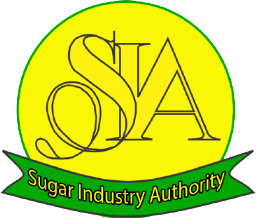Main menu:
SIRI History
SIA
Historical Background
The Sugar Industry Research Institute (SIRI) was established in 1973 under the auspices of the Sugar Industry Authority (SIA) and replaced the Sugar Research Department (SRD) set up in 1942 and which was formerly operated by the Sugar Manufacturers Association (SMA). The main function of SIRI then was to research and develop methods to improve agriculture technology as it relates to sugar cane production. A separate Factory Technology Division was established in 1975 to assist factories in improving their efficiency and to carry out technical training.
In 1992, the decision was taken to amalgamate both divisions with a view to streamline the operation of the Institute to better satisfy the needs of the Industry. The Head Office and Agricultural Division are located at Kendal Road, in Mandeville and the Factory Technology Division at Bernard Lodge in Spanish Town.
Organizational Structure
The Institute is managed by a Committee of Management which is appointed by the SIA and comprises of farmers, manufacturers and leading personalities from scientific community.
Functions
The terms of reference of the Sugar Industry Research Institute (SIRI) are to promote by means of research and investigations the technical progress and efficiency of the Sugar Industry. The core functions are:
Agriculture
- The development of new, pest resistant and high yielding sugar cane varieties.
- The development and testing of agricultural machinery and equipment relevant to local conditions.
- Provide technical assistance in irrigation, drainage and water management.
- Analyze soil and leaf samples and the preparation of subsequent fertilizer recommendations and in so doing assist farmers and estates in satisfying the nutritional requirements of sugar cane.
- Promote the safe and efficient use of herbicides, pesticides and other agricultural chemicals.
- To study, monitor and provide technical advice in the control and eradication of pests and diseases that affect sugar cane.
- Determination of the costs of producing sugar cane.
Factory Services Department
- Development and evaluation of new technology for sugar manufacturing.
- Conducting technical and economic studies for increasing factory efficiency.
- Monitoring the operations of sugar factories and providing technical advice.
- Research and development of sugar cane by-products.
- Promoting the proper management of factory effluent and in so doing protect the environment.
- To coordinate the maintenance of the core samplers and to monitor their operations for the new cane payment system.
Special Projects
In 1992 the Institute started the process of developing an environmental programme for the sugar industry. Since then, several seminars and workshops have been held to educate industry personnel about the requirements set out by Natural Resources Conservation Authority (NRCA) for wastewater effluent from sugar factories and distilleries. Laboratory testing facilities have been set up and environmental audits are now being conducted across the Industry. A pilot wastewater treatment plant has been set up at Frome.
The Laboratory continues to do well in several international exchange programmes in which it participates and to help maintain its high standards it has started on the road to being ISO 9000 certified. The Institute will soon join the few organizations in Jamaica which have attained this International Certification.
The ongoing search for new cane varieties has been strengthened by the addition of a biotechnology programme. This programme will seek to produce disease free plantlets for rapid expansion of new varieties and disease free clones for export.
The establishment of an experimental farm at Springfield in Clarendon has allowed for activities which are not convenient in commercial operations and has provided more control over experiments carried out by the Institute. Research projects being carried out includes irrigation and water management, nutrition and variety selection, testing of agricultural machinery, herbicide and pesticide monitoring.
The establishment of seed cane nurseries at strategic locations across the island for the rapid multiplication of pre-commercial varieties prior to release to the Industry.
The Institute has been instrumental in the implementation and monitoring of the new cane payment system where cane suppliers are paid based on the recoverable sugar in cane at the time of delivery to the factory.
Services
The analyses of soil and leaf samples and the preparation of fertilizer recommendations.
The provision of extension and advisory service to all cane farmers.
Training - SIRI conducts courses during the summer which are geared towards improving the technical skills of individuals employed in different areas of the Sugar Industry.
Carry out annual sugar cane production cost survey.
Develop computer applications software for field and factory operations.
Extension Services
To take new and improved technology to cane farmers and feedback from farmers to the researchers.
SIRI's Publications
The magazine, 'Sugar Cane' provides technical information on relevant areas of Sugar Technology.
Newsletters, Annual and Quarterly Reports, Technical Circulars and advisory booklets are all publications which communicate the results of work done by SIRI to the Industry.
Additionally, numerous seminars and workshops are held throughout the year to diseminate information to farmers and factory personnel.
Cane growers are kept informed of new developments via the radio programme 'Raising Cane' aired on RJR and KLAS FM.



